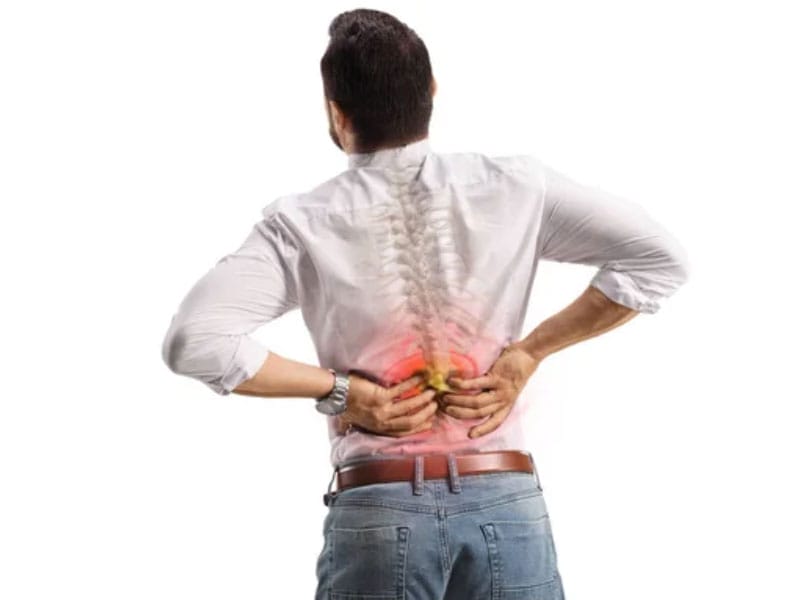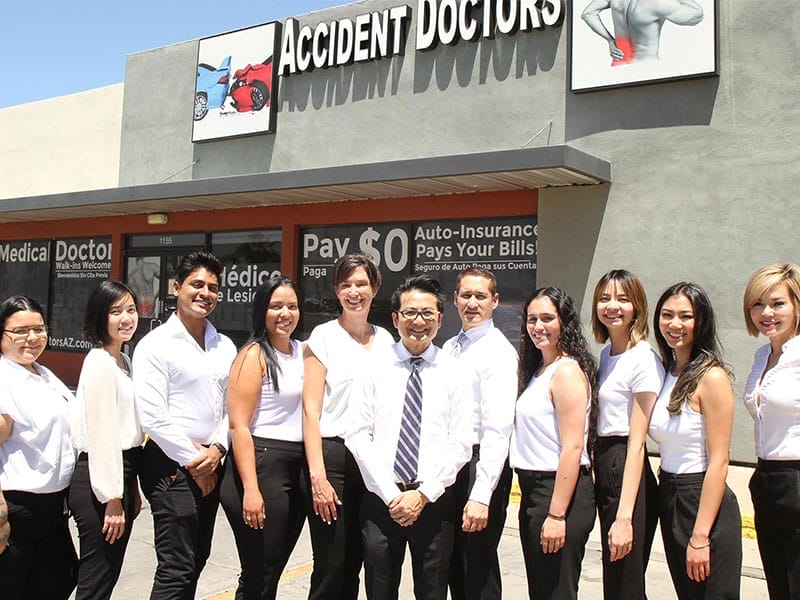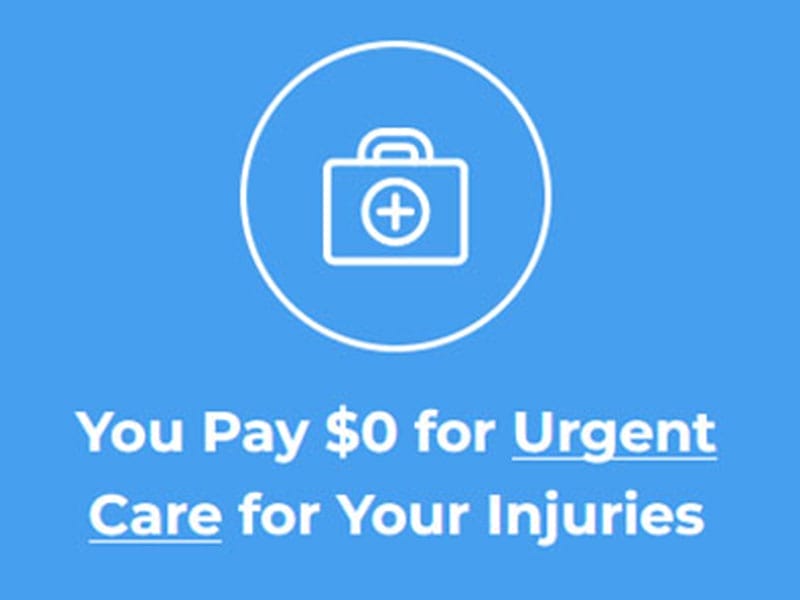The Ultimate Car Accident Recovery Guide
Navigating your way through the maze of medical care after a car accident is crucial. Timelines, types of doctors, and critical conversations are essential to your recovery.
This guide will help you understand when to seek treatment and how to communicate with your doctor effectively. Discover the right time and doctor for your injuries, ensuring optimal healing and well-being.
Explore the essential steps in post-car accident medical care, including timing, communication, and financial concerns. Address pain, find doctors, and manage costs to prioritize your health after a car accident.
With this comprehensive resource, you can confidently take control of your medical journey and achieve the best possible outcome.
Car accident injuries: When is it too late to see an accident doctor?
When experiencing car accident injuries, seeking medical attention promptly is crucial to determine if it’s too late to see an accident doctor.
Even if you don’t feel immediate pain or notice any visible injuries, it’s essential to understand that some injuries may have delayed or hidden effects.
Seeking medical attention as soon as possible is vital because it allows doctors to assess your condition thoroughly and identify any underlying injuries that may not be immediately apparent.
Delaying medical attention can have long-term effects on your health.
For instance, some injuries, such as whiplash or internal bleeding, may not present symptoms until hours or even days after the accident.
By seeking medical attention promptly, you increase your chances of receiving timely treatment and preventing potential complications.
Furthermore, seeking medical attention early on can also help document your injuries for insurance purposes.
This is crucial for any potential claims or lawsuits arising from the accident.
Keep in mind that medical expenses resulting from car accident injuries can be significant, and it’s essential to have a proper assessment and documentation of your condition to ensure adequate compensation. One important step in documenting your condition is to have a thorough examination by a medical professional who can provide a detailed report of your injuries and their potential long-term impact. Additionally, keeping a record of your symptoms and how they progress over time can be extremely helpful in building a strong case for compensation. You may want to consider using a car accident symptom checklist to help track and report your symptoms accurately. This can help ensure that you receive the appropriate coverage for all of your medical expenses related to the accident.
Lower back pain after car accident: When to see a doctor?
If you experience lower back pain after a car accident, it’s important to see a doctor as soon as possible to assess your condition.
Lower back pain can be a sign of a serious injury, and early intervention can help prevent long-term complications.
When you see an accident doctor, they’ll be able to evaluate your symptoms and determine the best course of action for your recovery.
Rehabilitation options such as physical therapy and chiropractic care may be recommended to help strengthen your back muscles and improve your mobility.
These treatments can help alleviate pain and restore function to your lower back.
In addition to traditional treatments, non-traditional options like acupuncture and massage therapy can also be effective in relieving lower back pain.
These alternative therapies can help reduce inflammation, improve blood flow, and promote relaxation.
Pain management strategies such as medication or special injection strategies may be prescribed to help manage your symptoms.
Your doctor will work with you to find the most effective treatment plan for your specific needs.
It’s important to understand that lower back pain after a car accident can have long-term effects.
Chronic pain and mobility issues may develop if the underlying condition isn’t properly addressed.
Seeking prompt medical attention can help prevent these complications.
Furthermore, documenting your injuries and seeking compensation may be important for legal considerations. If you have been injured in a car accident in Phoenix AZ, it is crucial to be aware of the deadlines for filing a personal injury claim. The statute of limitations for car accident claims in Arizona is generally two years from the date of the accident. Therefore, it is important to act quickly to ensure that you meet all the necessary deadlines for seeking compensation for your injuries. Missing these deadlines could result in losing the opportunity to pursue legal action and receive the compensation you deserve.
It’s crucial to keep records of your medical treatments, expenses, and any impact on your daily life.
Consulting with a personal injury attorney can help you navigate the legal process and ensure you receive the compensation you deserve.

How long do you have to go to a doctor after a car accident?
Make sure to visit a doctor promptly after a car accident to assess any injuries.
Seeking medical attention as soon as possible is crucial for your well-being and recovery.
Delaying a visit to the doctor can have serious consequences and complications, especially if there are hidden injuries that may not present immediate symptoms.
Late diagnosis can lead to worsened conditions and prolonged healing time.
Apart from the health implications, there are also legal implications to consider.
Timelines and documentation play a vital role in personal injury claims.
Seeing a doctor promptly after the accident helps establish a clear link between the accident and any injuries sustained. This documentation can be crucial when filing an insurance claim or pursuing legal action. Additionally, receiving first aid treatment for auto accident injuries as soon as possible can help prevent the worsening of any injuries and promote faster healing. It’s important to seek medical attention promptly to address any potential underlying issues that may not be immediately apparent.
This documentation is essential for legal purposes and can greatly impact the success of any insurance or legal claims.
Additionally, hidden injuries may not manifest right away.
Signs and symptoms of underlying issues such as whiplash, internal bleeding, or concussions may take time to appear.
By visiting a doctor early on, you increase the chances of identifying these hidden injuries and receiving appropriate treatment.
It’s important to remember that car accidents can be highly traumatic events.
In addition to physical injuries, there may be emotional and mental health considerations to address.
Seeking medical care early on can help in identifying and managing post-accident stress and ensuring your overall well-being.
Lastly, visiting a doctor promptly also helps in navigating insurance coverage and managing medical expenses.
Insurance companies often require prompt medical attention to consider coverage for medical bills and treatments.
By seeking medical care without delay, you can ensure that your medical expenses are covered and avoid any unnecessary financial burden.
I don’t feel much pain but wonder if I should get checked out just in case?
If you don’t feel much pain but are wondering if you should get checked out just in case, it’s important to prioritize your health and seek medical attention after a car accident.
Early detection is crucial in identifying any injuries or underlying conditions that may not manifest immediate pain.
Even if you don’t feel any discomfort right away, it doesn’t mean there aren’t hidden injuries that require medical evaluation.
Getting checked out by a doctor as a precautionary measure is part of preventive care.
By seeking medical attention, you can ensure that any potential injuries or complications are addressed early on, preventing them from becoming more serious over time.
Remember, taking care of your health now can save you from experiencing long-term effects down the line.
In addition to physical injuries, car accidents can also have a significant impact on your mental well-being.
The traumatic experience of a car accident can lead to anxiety, depression, or post-traumatic stress disorder (PTSD).
Seeking appropriate medical support and counseling can help address any psychological issues that may arise after the accident.
What type of doctor should I see after a car accident?
After a car accident, it’s important to consult with a qualified medical professional, like an accident doctor, to determine which type of treatments you need.
Depending on your specific injuries and symptoms, there are several types of doctors who can provide the necessary care and treatment.
By going to see an accident doctor, one who specializes in treating people involved in car accidents, you will get the best care.
Typically your local doctor won’t be able to help you like an accident doctor can.
They specialize in treating musculoskeletal injuries such as whiplash, back pain, and neck pain.
Any types of injuries that the accident doctor doesn’t treat, are referred out to other doctors in their network who specializes in diagnosing and treating injuries to the musculoskeletal system, including fractures, dislocations, and joint injuries.
If you’re experiencing neurological symptoms such as headaches, dizziness, or numbness, they might recommend you see a car accident neurologist. They can evaluate your condition and provide appropriate treatment options.
Additionally, a car accident physical therapist can help with rehabilitation and improving mobility after an accident.
Lastly, if you’re struggling with pain management, the accident doctor specializes in car accident pain management.
They will develop a tailored treatment plan to address your pain and improve your quality of life.
How to find a doctor after a car accident?
To find the best doctor after a car accident, start by online for “accident doctor.”
This is a great starting point because the accident doctor has been approved by most insurance companies and is knowledgeable in handling your specific situation.
And they will treat you with $0 out of your pocket.

What should I say to my doctor after a car accident?
When speaking to your doctor after a car accident, be sure to provide a detailed account of your symptoms and any changes you have noticed in your health.
Your doctor needs accurate information to properly diagnose and treat your injuries.
Start by explaining the post-accident symptoms you’re experiencing, such as pain, dizziness, or difficulty sleeping.
Be specific and mention any delayed injuries that may have surfaced after the accident.
It’s also important to address any emotional trauma you may be experiencing.
Car accidents can be traumatic events, and it’s normal to feel psychological distress afterwards.
Your doctor can provide guidance and support, and may refer you to a mental health professional if needed.
It is also important to recognize that some injuries may not be immediately apparent.
Hidden injuries, such as whiplash or internal damage, can have delayed symptoms.
Be sure to inform your doctor of any new or worsening symptoms that you experience in the days or weeks following the accident.
Finally, it’s essential to monitor for any long-term effects or chronic conditions that may arise as a result of the accident.
Your doctor can help you stay vigilant and address any ongoing health issues that may arise in the future.
What do doctors check after a car accident?
After discussing your symptoms and any changes in your health with your doctor following a car accident, it’s important to understand what specific areas they’ll check for potential injuries.
When you seek medical advice after a car accident, the doctor will conduct a thorough examination to assess your condition.
They’ll typically start by reviewing your medical history, including any pre-existing conditions that could impact your recovery.
The doctor will then perform a physical examination, checking for any visible injuries or signs of trauma.
They’ll pay close attention to areas commonly affected by car accidents, such as the head, neck, back, and limbs.
The doctor may order diagnostic tests, such as X-rays or MRI scans, to further evaluate any potential injuries.
They’ll also assess your range of motion, muscle strength, and reflexes.
It’s important to provide the doctor with accurate and detailed information about your symptoms and any pain you’re experiencing.
This will help them make an accurate diagnosis and determine the most appropriate medical treatment options for your specific injuries.
Be sure to keep any post-accident medical documentation for future reference and follow up with your doctor as recommended.
How can I see a doctor if I don’t have any money?
If you’re unable to afford medical care after a car accident, you are in luck because the accident doctor doesn’t require any out of pocket money to treat all your auto injuries.
They work directly with the insurance company and never require you to come out of pocket with any money for treatment.

Conclusion
In conclusion, it’s crucial to seek medical attention after a car accident, even if you don’t feel immediate pain. The timeline for seeking treatment may vary, but it’s important not to wait too long.
Any type of doctor can be consulted, but it’s recommended to see an accident doctor who is experienced in treating accident-related injuries and can provide you with access to their network of specialized lawyers, chiros, and physical therapists to get you pain free and get the money you deserve from your accident.
